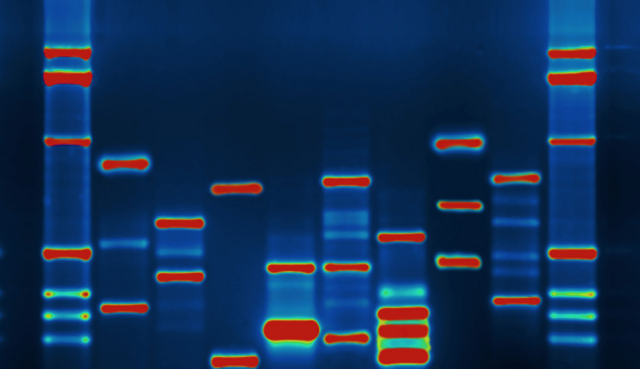
Who was the "devious defecator" leaving their "offending fecal matter" across an Atlanta-area warehouse that stored and delivered products for grocery stores?
That's how US District Judge Amy Totenberg described the issue as she ruled (PDF) in favor of two employees who were forced to give a buccal cheek swab to determine if their DNA was a match. But a match was not to be had. The two sued, claiming that the Genetic Information Nondiscrimination Act (GINA) prohibited their 2012 tests by a forensics lab hired by their employer, Atlas Logistics Group Retail Services.
Employees Jack Lowe and Dennis Reynolds are expected to go to trial against their employer on June 17 in what could be the first damages trial resulting from the 2008 civil rights legislation, which generally bars employers from using individuals' genetic information when making hiring, firing, job placement, or promotion decisions. The Office of Management and Budget has said the "potential misuse of this information raises moral and legal issues."
Ahead of trial, Judge Totenberg set aside Atlas Logistics' claims that the "genetic information" at issue wasn't covered by the law. Atlas Logistics asserted that GINA excludes analyses of DNA, RNA, chromosomes, proteins, or metabolites if such analyses do not reveal an individual’s propensity for disease. The judge ruled that the "plain meaning of the statute's text" is satisfactory for the case to go forward despite the tests at issue not revealing disease propensities.
But how much is a breach of this act worth to the warehouse workers Lowe and Reynolds? Phrased differently, what's the monetary value of falsely being fingered as the "devious defecator"?
According to Atlas Logistics, the answer is a combined $200,000 for both plaintiffs. Days ago, the company offered that deal (PDF) without admitting wrongdoing. "This Offer includes any and all damages sought by Plaintiffs in this matter and is inclusive of attorneys’ fees and taxable costs," Atlas Logistics attorney Dion Kohler wrote.
The plaintiffs, however, said the offer was a load of doo doo. "We are not taking the offer," Amanda Farahany, the plaintiffs' attorney, told Ars in an e-mail.
When asked how much damages they were seeking, Farahany replied, "We are asking that a jury determine the value of this important right."
For the science buffs, here's a briefing on how the testing was conducted:
The two plaintiffs were singled out because their work schedules coincided with the timing and location of what the court termed the "defecation episodes."
The warehouse firm hired Speckin Forensic Laboratories to perform the buccal swab samples of the plaintiffs to compare them against the fecal matter left on site. Speckin recommended Short Tandem Repeat (STR) analysis.
According to the judge's ruling:
STR analysis compares samples by analyzing “genetic spacers” at various sites. (Id. No. 16.) “Genetic spacers” are the space between an individual’s genes and vary drastically from person to person. (Id. No. 17.) STR analysis can be used to compare DNA from one sample to another for identification purposes. (Id. No. 20.) STR analysis cannot, however, determine an individual’s propensity for disease or disorder. (Id. No. 19.)
The cheek samples were sent to GenQuest DNA Analysis Laboratory via an intermediary, Semen and Sperm Detection Inc, according to the record. A PowerPlex 21 System was used to perform the STR analysis on the buccal swab samples. Court documents said that PowerPlex 21 System "measures the length of spaces between two genes at twenty chromosome spaces to compare various DNA samples" and "produces an electropherogram, which graphs the PowerPlex 21’s analysis of DNA samples."
reader comments
203